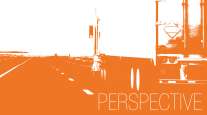Uber Aims to Restart Self-Driving Car Tests in Pittsburgh This Summer

Uber plans to resume testing its self-driving cars in Pittsburgh this summer.
The company is shutting down testing operations in Arizona and focusing instead on testing in Pittsburgh and San Francisco, according to an internal e-mail from Eric Meyhofer, a Carnegie Mellon University graduate and the head of Uber’s self-driving car operations.
Meyhofer wrote that Uber wants to resume testing in Pittsburgh first and hopes to restart testing in San Francisco and Sacramento, Calif.
“Our return to public roads is tied to securing the proper testing permits alongside our safety improvements,” Meyhofer wrote. “We remain focused on our safety review, which is evaluating everything from the safety of our system to our vehicle-operator training.”
RELATED: Uber crash is nightmare driverless world feared but expected
RELATED: Uber death elicits warning from Teamsters wary of robo-truckers

This March 19, 2018 still image taken from video provided by ABC-15, shows investigators at the scene of a fatal accident involving a self-driving Uber car on the street in Tempe, Ariz. (ABC-15.com via AP)
Uber grounded its fleets of self-driving cars in Pittsburgh, San Francisco, Toronto and Tempe, Ariz., after a March crash that killed a woman walking her bike across a Tempe street.
Local and federal investigations into the crash continue.
Uber will need to reapply for a permit to test in California.
Leslie Richards, the head of Pennsylvania’s Department of Transportation, outlined last month a series of guidelines she would like Uber to follow when it starts testing again in Pittsburgh. Uber has had talks with PennDOT about meeting those guidelines and with Pittsburgh officials about restarting its testing.
Pittsburgh Mayor Bill Peduto, who was in Milan, Italy, on May 23 at the The Rockefeller Foundation’s 2018 City XChange Summit, said he was not told about Uber’s decision to restart testing.
“I made it clear to Uber officials after the Arizona crash that a full federal investigation had to be completed, with strong rules for keeping streets safe, before I would agree with the company to begin testing on Pittsburgh streets again,” Peduto said in a statement. “Uber did not tell me of today’s announcement, and I was forced to learn about it through social media reports. This is not the way to rebuild a constructive working relationship with local government, especially when facing a public safety matter.”
RELATED: Self-driving cars could save lives even before they’re perfected, report says
Peduto said the new rules for Uber in Pittsburgh included limiting self-driving cars to 25 mph in the city, regardless of posted speed limits and using its app to alert human drivers when they are exceeding speed limits.
Peduto left May 15 for a 10-day trip to Europe that included two conferences and a stop in the Italian hometown of the mayor’s family.
Uber said it has had on-going discussions with city and state officials, and is aware of the new expectations and requirements facing the company when it returns to testing in Pittsburgh. The company said it will work with the city before it restarts testing in Pittsburgh.
Meyhofer said Uber will tweak how it tests cars on the road. Pittsburgh was home to Uber’s first road tests more than two years ago and is the site of the company’s test track.
“When we get back on the road, we intend to drive in a much more limited way to test specific-use cases in concert with our software and hardware development teams,” Meyhofer wrote. “Taking this approach will allow us to continually hone the safety aspects of our software and operating procedures. We have also used the past two months to strengthen our simulation capability, which will allow us to be more efficient with our use of road miles.”
Uber wants to put cars on the roads only in cities where its engineers can have direct access to them. The company has established large engineering centers in Pittsburgh and Toronto and is headquartered in San Francisco. Its Tempe center was focused primarily on operations.
About 300 employees in Uber’s Arizona operations will lose their jobs, according to the Arizona Republic.
In a statement, the company said it was looking forward to getting back on the roads in the near future and that it remains committed to its “top-to-bottom” safety review. Uber hired the former head of the National Transportation Safety Board, Christopher Hart, to lead the review of Uber’s safety culture. NTSB also is investigating the Tempe crash. Testing won’t resume until after the NTSB concludes its investigation and Uber completes its internal safety review.
Distributed by Tribune Content Agency, LLC




